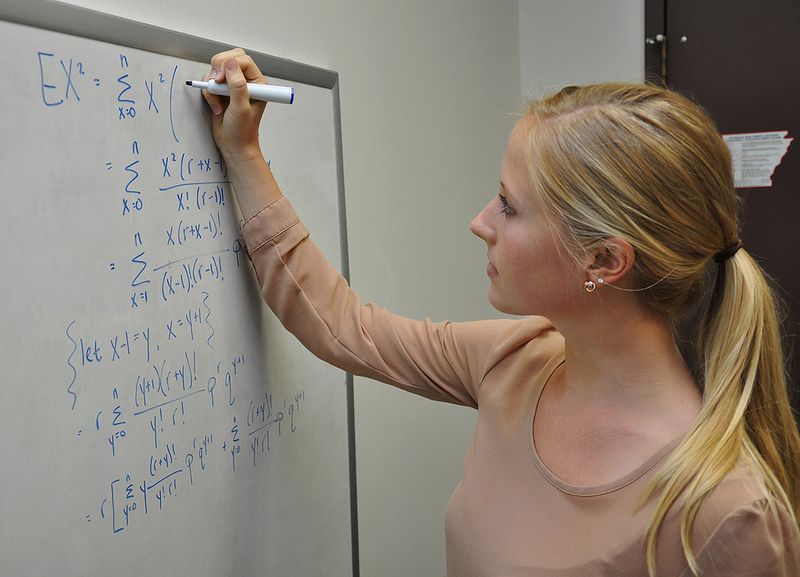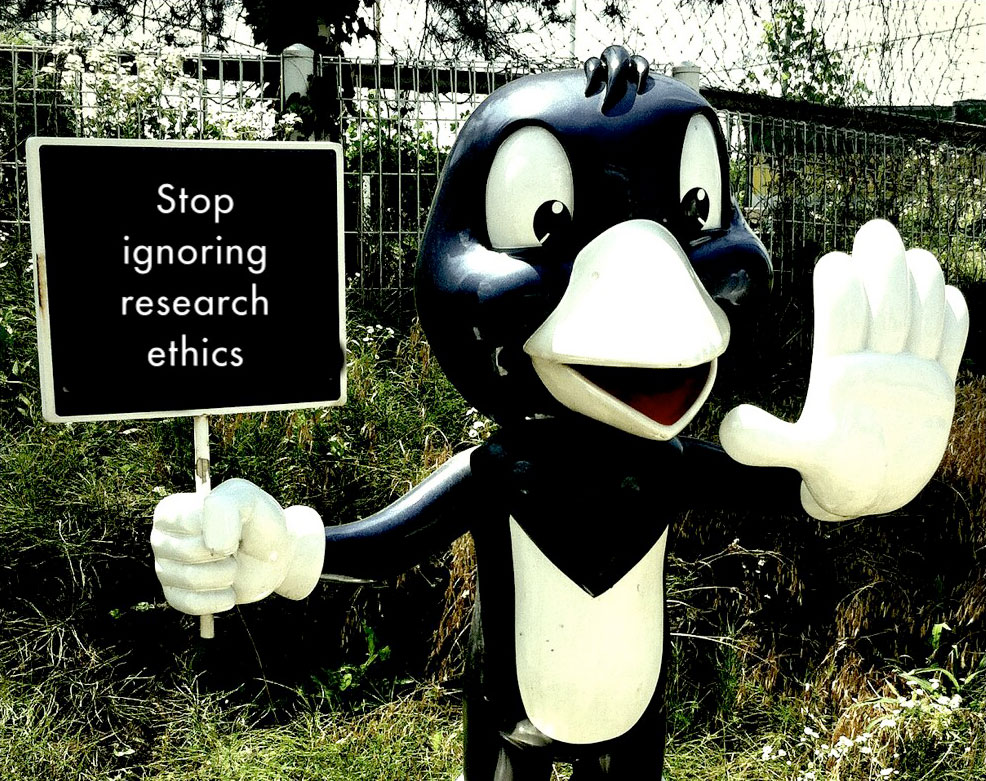Those outside of the academic sector may not be aware that universities that receive certain federal funding are required to provide training in what’s known as the “responsible conduct of research.” How this is done and who receives such training varies by institution. In this post, Dr. Alan Fine, Director of Boston University’s (BU) Responsible Conduct of Research Program (RCR), describes in detail the school’s training to ensure that researchers undertake their work in a responsible, ethical manner. Dr. Fine also addresses the impact and challenges of providing such training.
There is also a trend among higher education institutions to engage faculty members even more deeply in ethics as “faculty fellows” or “faculty scholars” in institutes or centers. The Clare Boothe Luce Program’s Sarah DeMartazzi provides some information on a number of ethics institute faculty fellows/scholars programs at Clare Boothe Luce Program grantee institutions around the nation.
The Responsible Conduct of Research Program at Boston University
By Dr. Alan Fine
While Boston University’s RCR program is designed to meet National Institutes of Health and National Science Foundation compliance requirements, at the same time we aspire to support and enhance a research and training culture characterized by truth, integrity, transparency, and respect for colleagues and community.
Structure of Workshops
The 4 case-based thematic workshops (2 hours each) are the centerpiece of our program. The 4 themes are: Scientific Publication, Objectivity in Science, Data Integrity, and Collaborative Research. For each workshop, trainees are provided a packet of readings, a list of University resources available for dealing with ethical concerns, and representative case vignettes with associated questions for discussion.
At each workshop, we reiterate the broad goals of RCR training which are to: 1) underscore the central importance of truth, integrity, and transparency in research; 2) highlight the necessity of open and honest communication with colleagues and mentors; 3) point out our responsibilities to the larger research community and lay public; and 4) emphasize how important it is to be pro-active to ensure that our research environments are characterized by fairness, clarity, and respect. I emphasize that it is not the responsibility of trainees to be “investigators”—rather if they witness or are involved in uncomfortable situations where there are ethical concerns, they should, if they feel the need, report it to university officials. That some ethical quandaries may not have a clear or satisfying resolution and that how one thinks about a specific predicament can be deeply personal are stressed.
I am assisted by volunteer mentors who include: deans, journal editors, training grant Primary Investigators, social scientists, bench scientists, engineers, economists, university lawyers, and representatives from the ombudsman office (who are responsible for investigating complaints). Guided by associated questions, small groups (6 trainees) spend 10-20 minutes discussing each vignette. The vignettes are designed to illustrate specific situations, problems, or conflicts. They deliberately contain examples of sloppy, imprecise research practices. Trainees are tasked with identifying key ethical issues, proposing a best means of resolution, describing the consequences of the lack of rigor, and developing strategies that could have been employed to prevent and manage these issues/conflicts beforehand. We return to a discussion with the entire workshop group where small groups summarize their thoughts, and there is an opportunity to ask both practical and conceptual questions. During the general discussion, the mentors share their reflections and thoughts based on their own personal experiences.
Challenges
The promotion of an appropriate and stable balance between the instructional and compliance missions of RCR requires an ongoing mindfulness of this issue. The fact that this program is housed in the offices of Graduate School Provosts helps to bolster a proper balance. A persistent, unresolved issue is the uncertainty over the actual impact of RCR on the thinking and behavior of workshop participants. In a broader sense, this unresolved question touches upon long-held controversies regarding how and when ethical knowledge is optimally acquired and to what extent one can shape ethical thinking in adults. An ongoing concern is how best to maintain trainee interest, given that workshop participation is a “have to” and interferes with trainees’ busy schedules. In this regard, we endeavor to make the discussions relevant, vibrant, practical, and aspirational. Further, we are mindful that trainees have to just understand certain “facts.” Examples of this include understanding who “owns” the data and what are the key guiding principles for handling data outliers. Lastly, several of the vignettes highlight conflicts that may arise in the mentor-mentee relationship and underscore why mentees/trainees need to be proactive, thoughtful, and strategic in managing their professional interactions.
Faculty Ethics Fellows/Scholars:
A Deeper Dive Into Ethics
By Sarah DeMartazzi
While all faculty are expected to behave ethically, universities and colleges are developing deeper and more engaging ways to champion faculty as ethical higher education community leaders. Faculty fellows/scholars at ethics institutes or centers are faculty members tasked specifically to serve as ethical leaders on campus, and in some cases, in the larger community. Some fellows are hired specifically to focus only on ethics; others are drawn from the school’s broader teaching and research faculty. Fellowships may provide faculty with funding, support, research, course and workshop development, and anything else they may need to teach, research, and disseminate their work on ethics. The length of such fellowships varies and may be as short as a year or two, or span an entire academic career. The university may also expect faculty to continue their own ethical learning and professional development by attending conferences or outside events.
Learn more about the different faculty fellow/scholars ethics programs that inspired this post by visiting their websites below:
- Fordham University – The Center for Ethics Education
- Santa Clara University – Markkula Center for Applied Ethics
- Georgetown University – Kennedy Institute of Ethics
- Ohio State University – Center for Ethics and Human Values
- Johns Hopkins University- Berman Institute of Bioethics
- Ethics at the University of Notre Dame
- Xavier University – Cintas Faculty Fellows (for business ethics)
- Harvard University – Faculty Fellowship Program at the Edmond J. Safra Center for Ethics
Author Bios
Dr. Alan Fine is Director of the Responsible Conduct of Research Program (RCR) and a professor in the Department of Medicine at Boston University. He attends on the general pulmonary consult service, medical intensive care unit and acute pulmonary care clinics at the Boston VA Medical Center. In addition, Dr. Fine leads an active research laboratory. He is an-NIH funded Principal Investigator and Director of the Stem Cell Biology Program at the Boston University Pulmonary Center. He is also the recipient of a Congressionally Directed Medical Research Program Award (CDMRP) that is focused on developing novel cell based treatments for acute lung injury.
Dr. Fine has also developed an interest in the complex issues associated with the ethical conduct of research and how best to educate and enlighten trainees about these issues. To pursue this interest, he completed a 1 year fellowship in Bioethics at Harvard University (2014) and now leads, in his capacity as Director of RCR, a formalized educational program on research ethics that is directed at pre-doctoral and post-doctoral students throughout Boston University. In addition to the didactic elements of this program, he has several ongoing studies relating to the pedagogy of research ethics and the relationship of research misconduct to paper retractions.
Sarah DeMartazzi is the Program Assistant for the Clare Boothe Luce Program. Prior to joining the Luce Foundation, Sarah was the administrative assistant for the PCLB Foundation, managing their office space and providing support for their grant cycle. She was also previously a research assistant at the New School and in the law firm of Paul Weiss. Sarah earned a master’s degree from the New School in Politics, focusing on Global Environmental Politics, and she earned her bachelor’s degree at Penn State University in International Relations with a minor in Environmental Inquiry.








